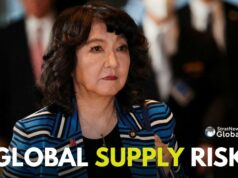
Former Bangladesh prime minister Sheikh Hasina is “deeply grateful to the Indian people for providing me with a safe haven this past year.”
Hasina who fled Bangladesh for India last August in the wake of massive public protests against her rule, has been living quietly in Delhi at an undisclosed location. Breaking her silence, she gave written replies to questions from the Hindustan Times.
She was clear that the policies of the interim government of Mohammad Yunus were to blame for the friction with India.
“If there is friction between India and Dr Yunus’ unelected administration, that has nothing to do with me and everything to do with the chaotic, violent and extremist policies that are taking shape under Dr Yunus’ rule. That includes physical and judicial attacks on religious minorities, retrograde social and religious policies and even hostile rhetoric towards India from officials in Dhaka.”
In her view, such hostility did not “sit comfortably” with most Bangladeshis given deep and broad cross-border connections and Dhaka’s status as a reliable partner. She was critical of the electoral ban placed on the Awami League.
“There can be no hope for democracy,” she warned “when the country’s oldest political party the Awami League is banned from participating. The ban is a violation of Bangladesh’s constitution and the fundamental democratic rights of Bangladesh’s 173 million people.”
The ban, she said, will result in many people not voting in the elections scheduled for next February. She indicated the ban will be challenged “diplomatically and peacefully”, noting that her party has never seized power through unconstitutional means.
The next government, she said, would not have any electoral legitimacy if the ban stays in place and urged “free, fair and inclusive elections.”
She rejected accusations that she was personally to blame for the loss of lives in the chaotic days preceding her flight to India.
“To suggest that I was directing minute-by-minute tactical responses from the prime minister’s office is to fundamentally misunderstand how security forces work. At no point did I authorise security forces to fire on crowds.”
She said these allegations had been brought against her by an unelected regime intent on silencing its main political opponent. She recalled that in the days following the first deaths, she had ordered an independent inquiry, which the Yunus administration had quickly dismantled.
Referring to the charges against her of crimes against humanity and the ongoing trial by a tribunal in Dhaka, Hasina urged that “a fair and independent judicial body like the International Criminal Court has to step in to identify and verify present day abuses and hold the Yunus regime accountable.”
She termed as “disgraceful”, Yunus “consistent denial of violence that still targets Hindu, Buddhist, Christian, indigenous communities,”and pointed to “rising extremism and sectarian violence in day to day life.”
She targeted Yunus for corruption, wondering how a man “Who began his career with Grameen Bank with a salary of only 6000 taka, how did he amass such vast wealth … today he is said to hold fixed deposits worth 5,000 crore taka across multiple accounts.”
She regretted that Bangladesh, which was leaving behind its LDC status, had been downgraded by the IMF multiple times in the past year with key development initiatives delayed and ties with India strained by short-sighted policy shifts.
Thirty eight years in journalism, widely travelled, history buff with a preference for Old Monk Rum. Current interest/focus spans China, Technology and Trade. Recent reads: Steven Colls Directorate S and Alexander Frater's Chasing the Monsoon. Netflix/Prime video junkie. Loves animal videos on Facebook. Reluctant tweeter.




